Abstract
Sixteen moderately and mildly retarded adults were selected from a group residential facility and randomly assigned to experimental and control groups. The experimental group received a 12-session interpersonal skills training program consisting of instruction in the following areas: (1) Introduction and Small Talk, (2) Asking for Help, (3) Differing with Others, and (4) Handling Criticism. The social skills instructional package included verbal instruction, modeling, role playing, feedback, contingent incentives, and homework. As a result of this training program, moderately and mildly retarded adults acquired new social skills as evidenced by performance on a situation role play assessment. These gains generalized to untrained role play situations but did not result in significant group differences when assessed in a more natural setting (i.e., local grocery store).
Full text
PDF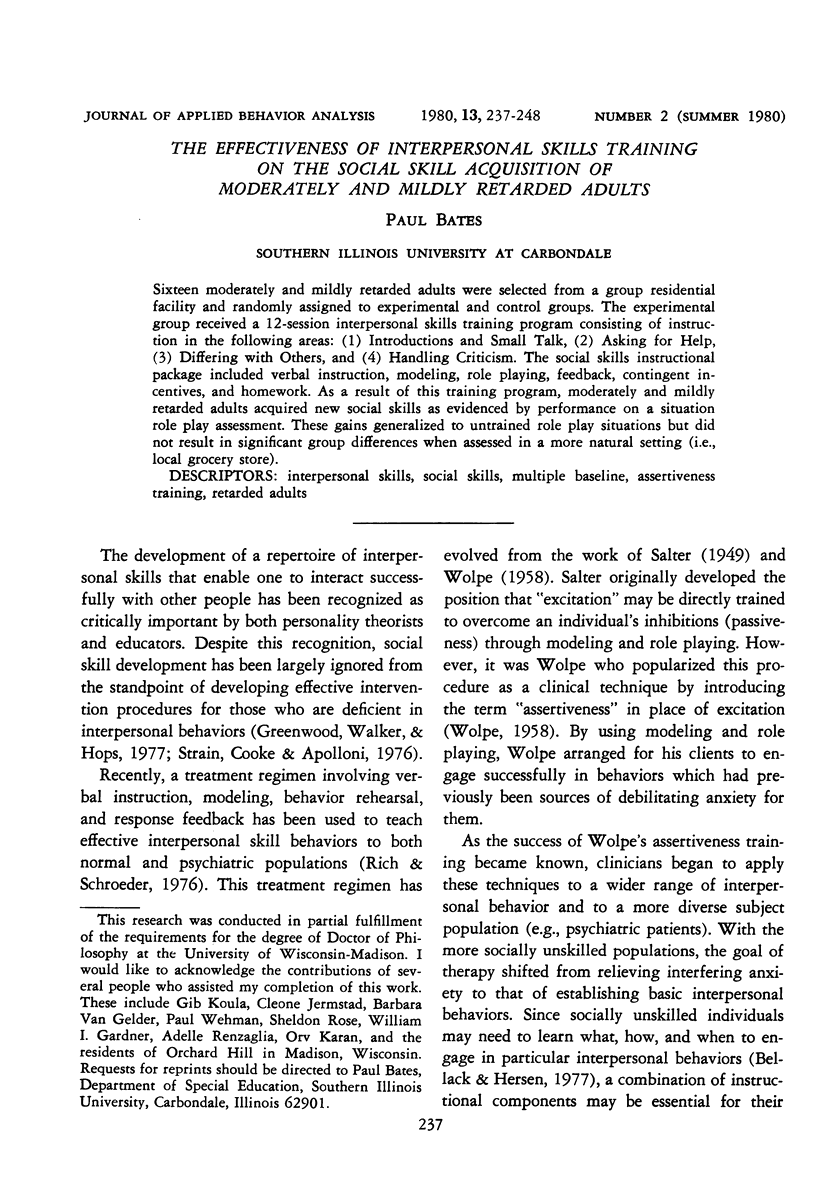
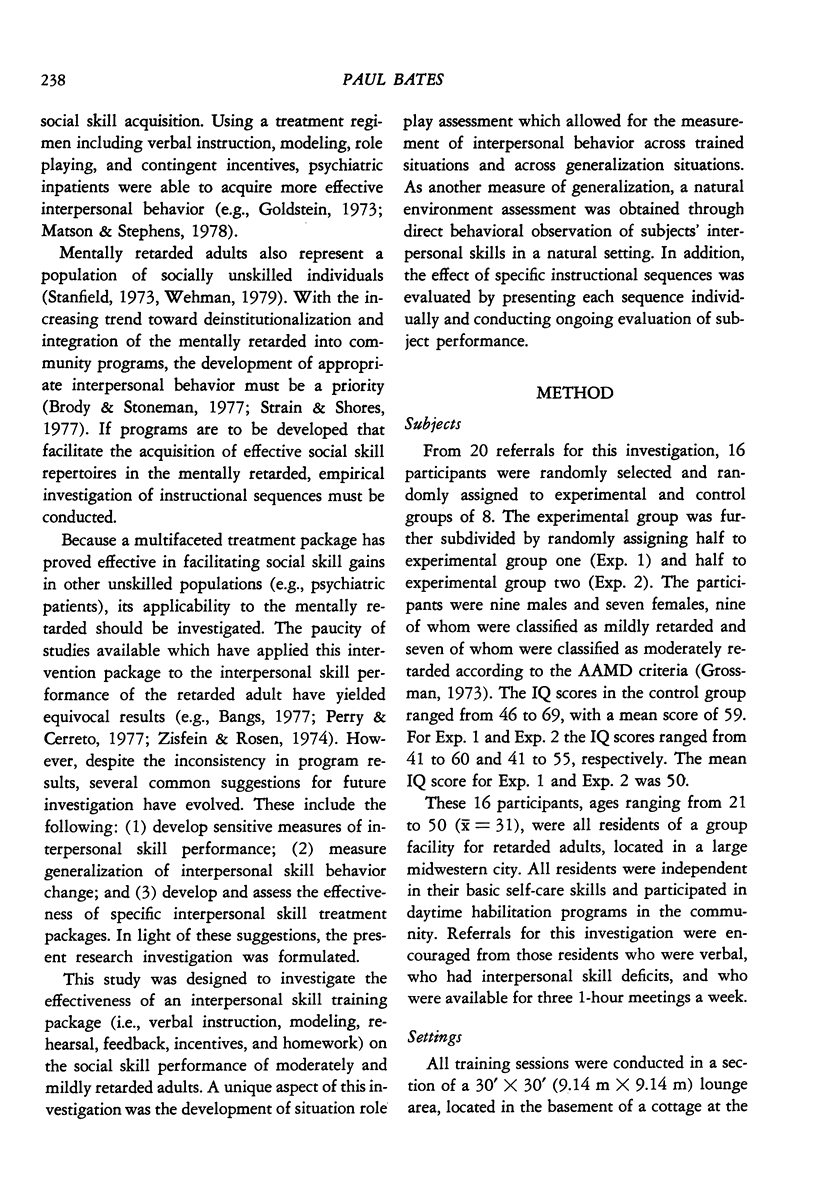
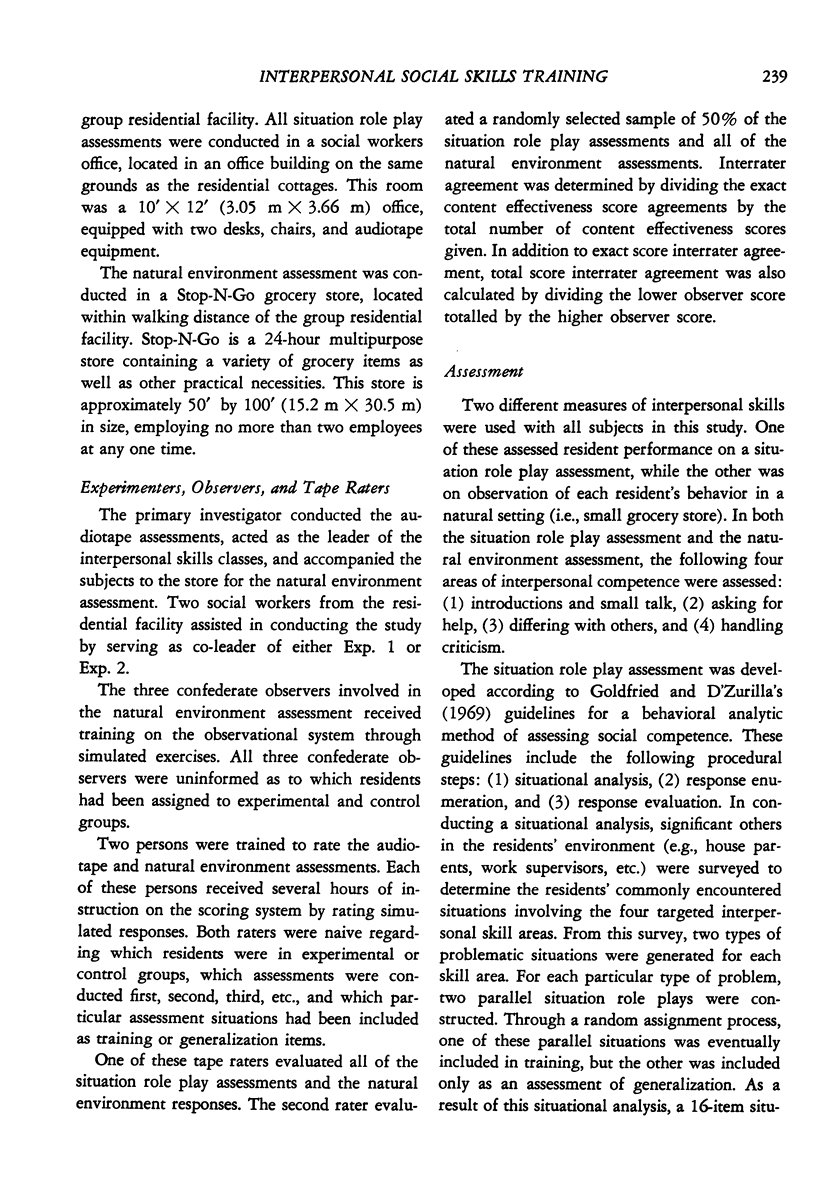
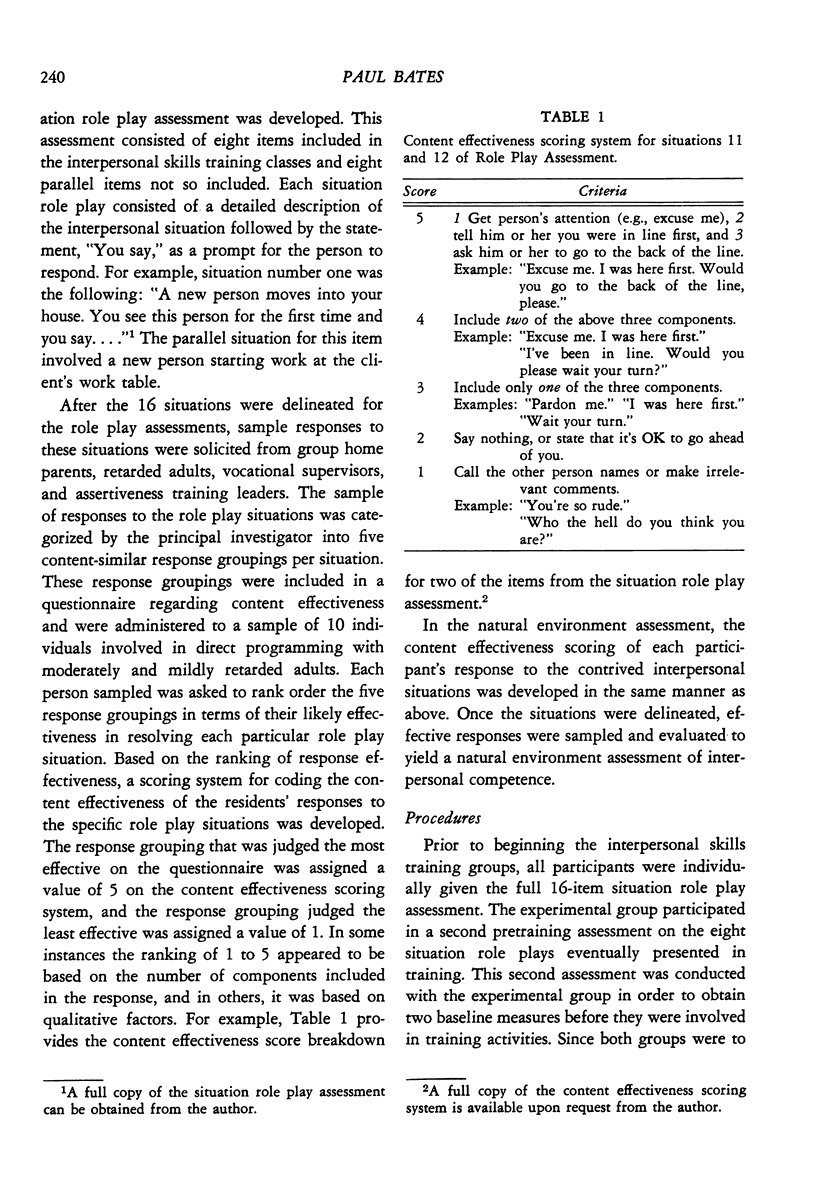
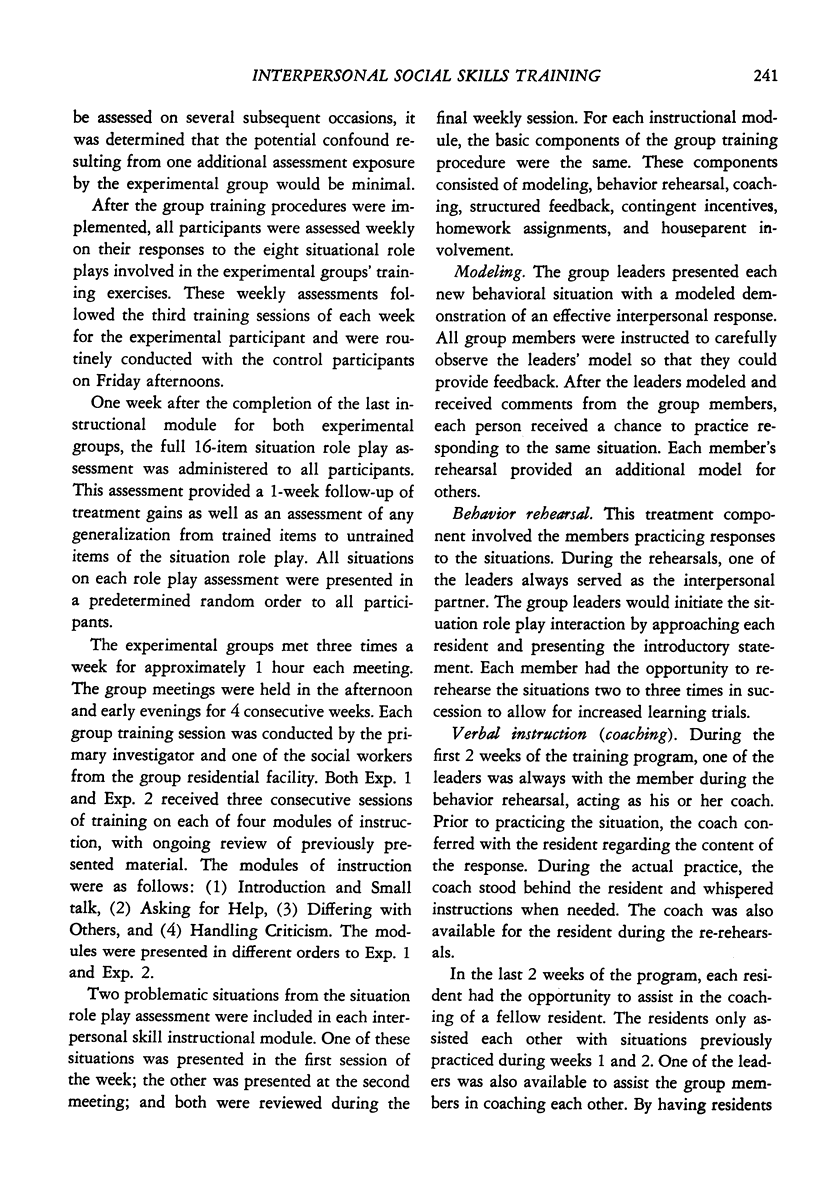
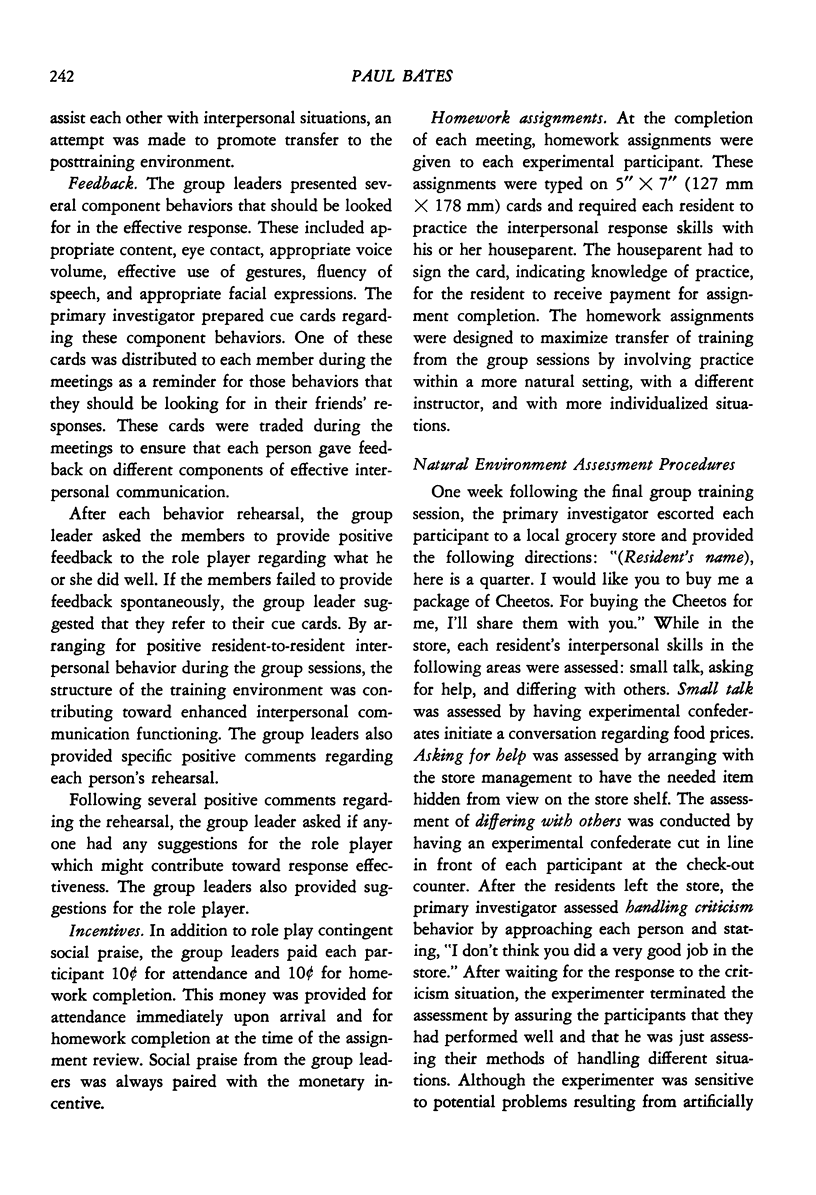
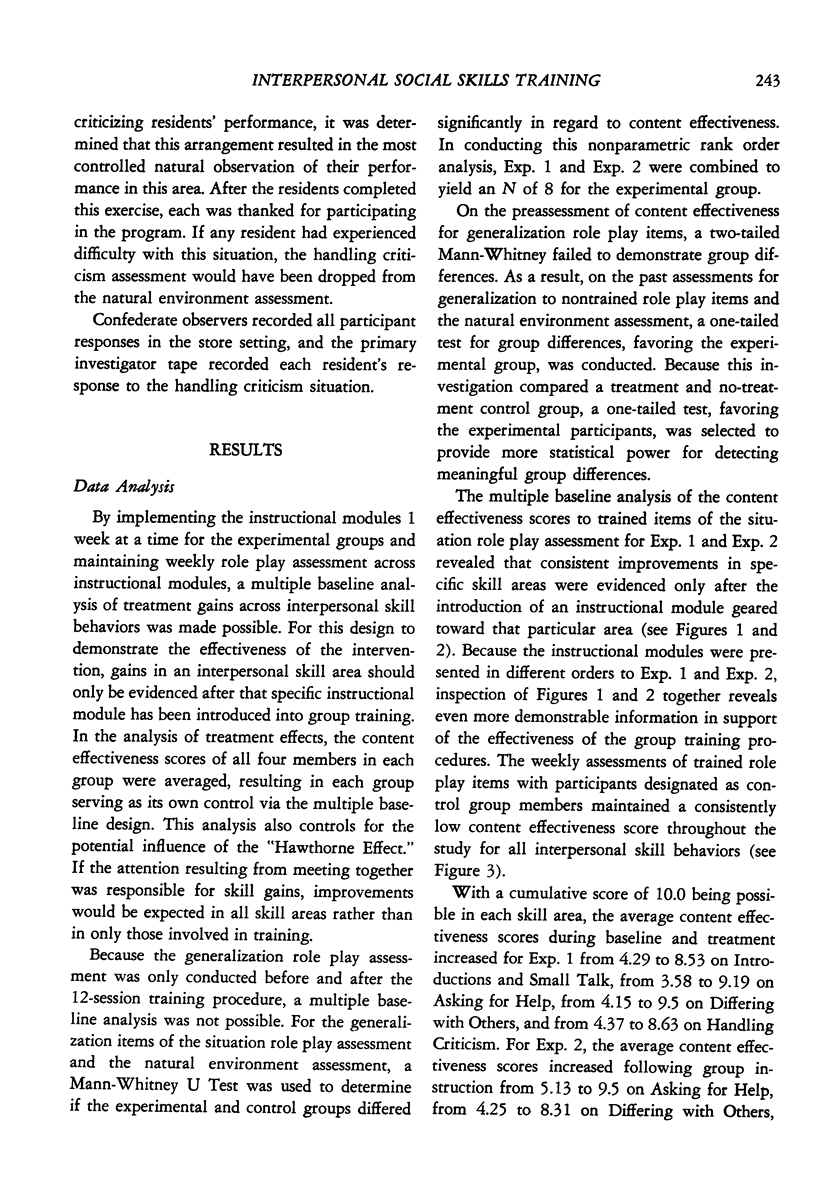
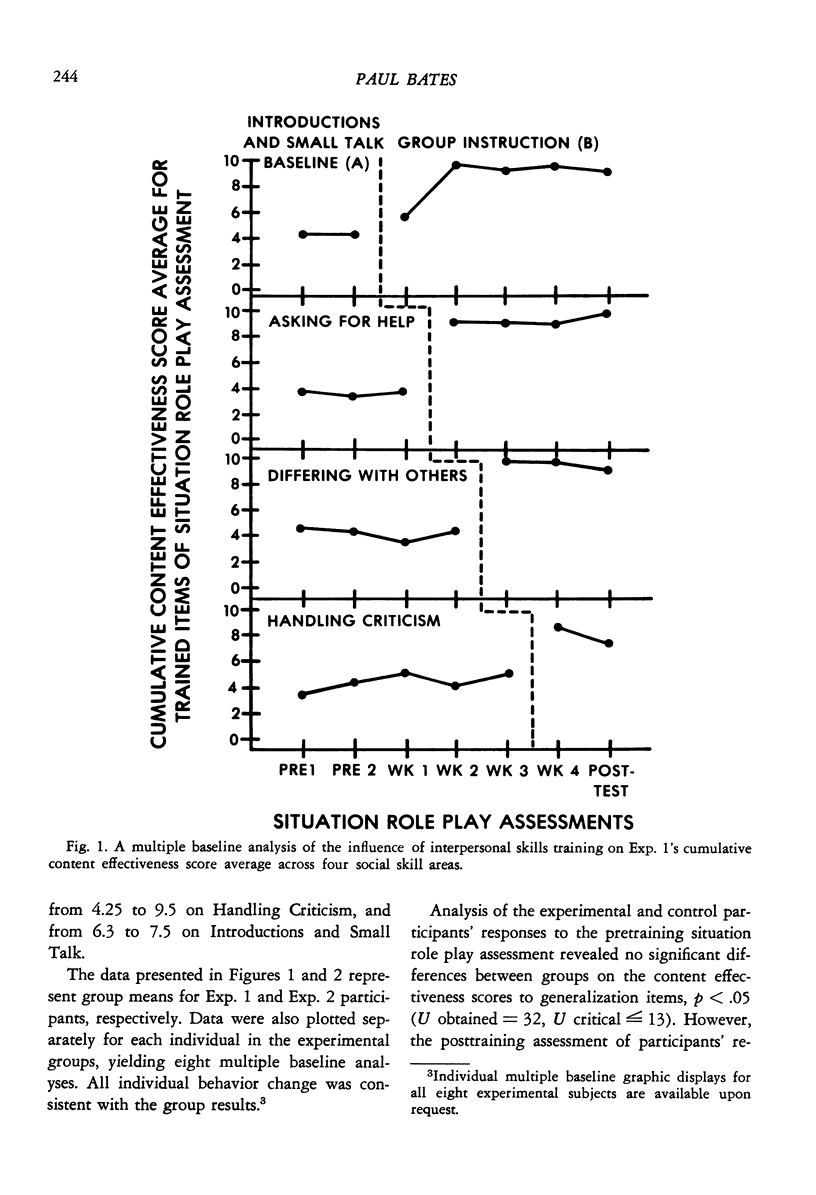
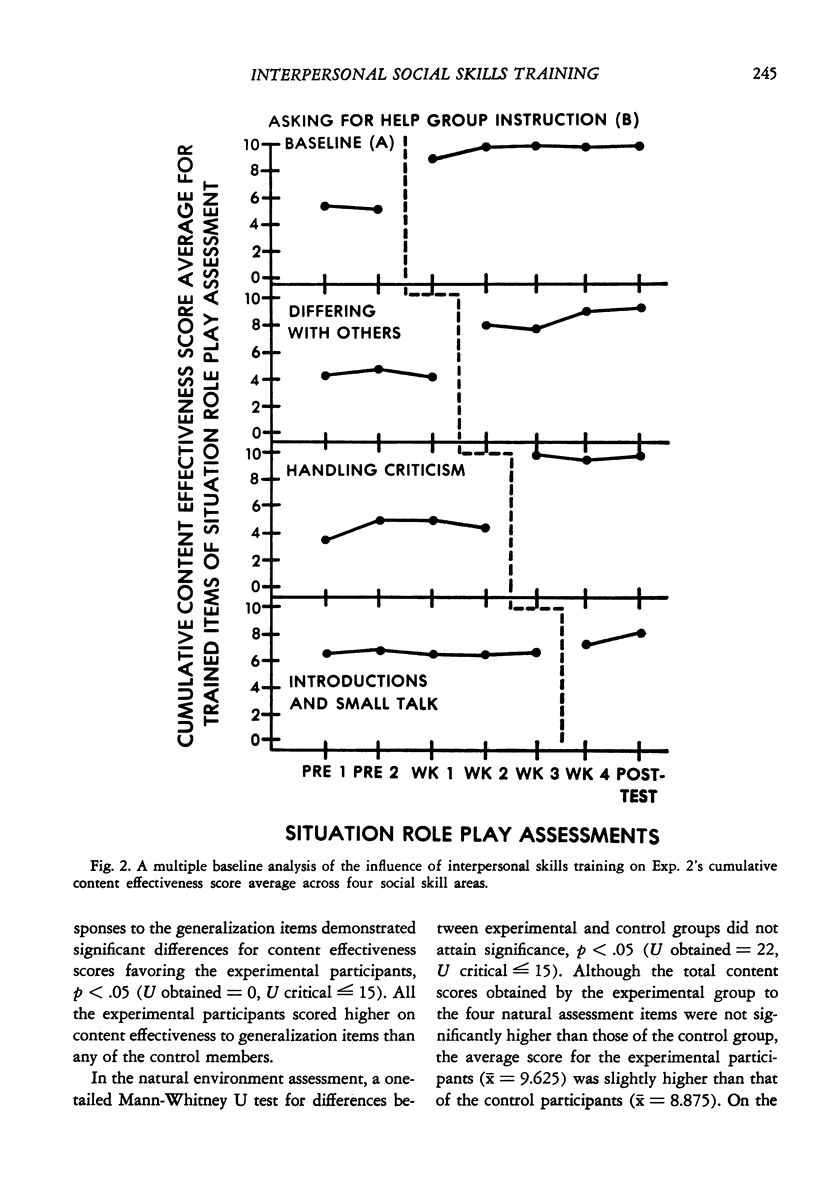
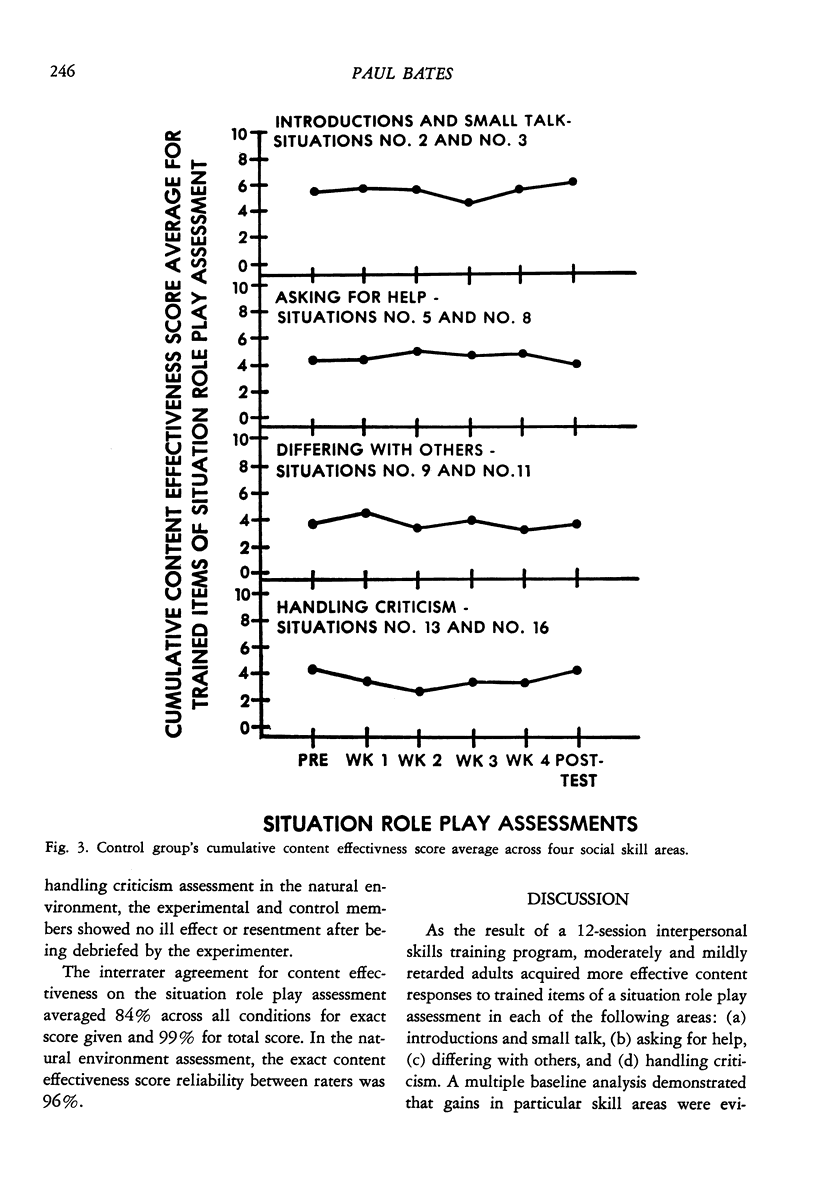
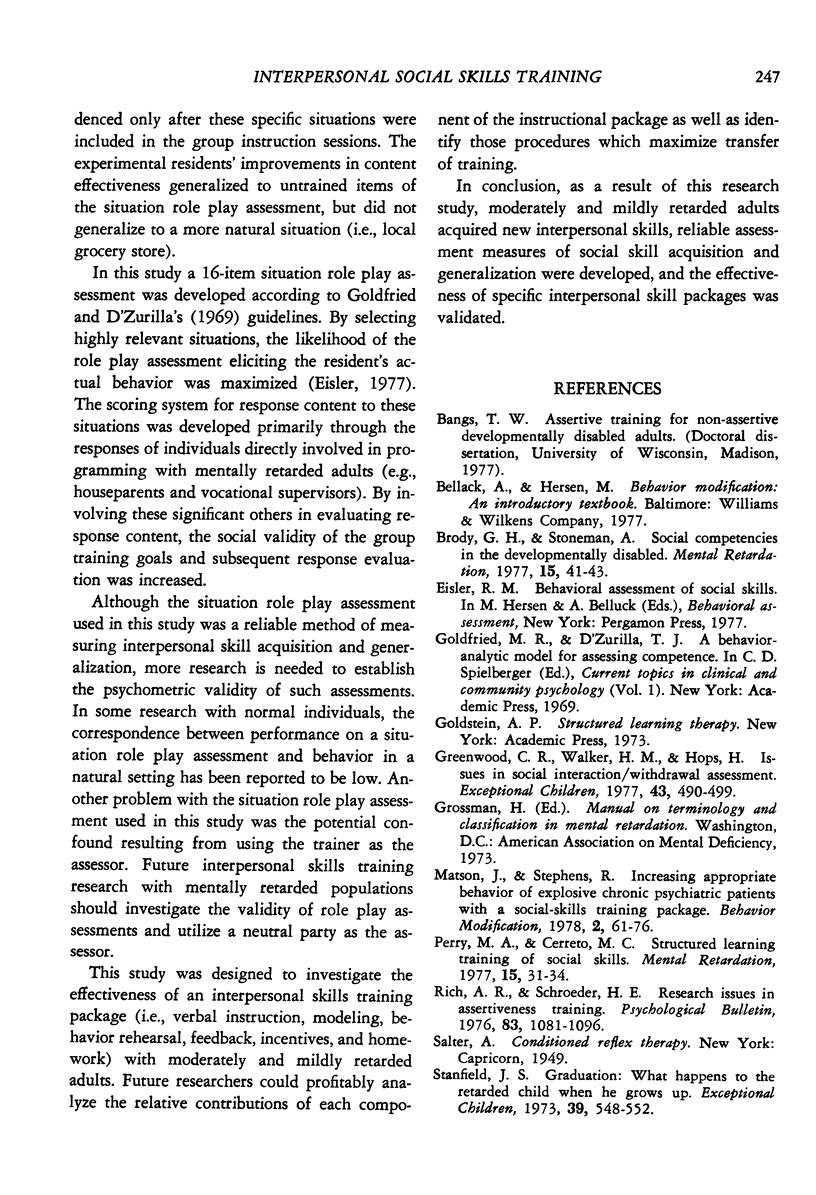

Selected References
These references are in PubMed. This may not be the complete list of references from this article.
- Brody G. H., Stoneman Z. Social competencies in the developmentally disabled: some suggestions for research and training. Ment Retard. 1977 Aug;15(4):41–43. [PubMed] [Google Scholar]
- Greenwood C. R., Walker H. M., Hops H. Issues in social interaction/withdrawal assessment. Except Child. 1977 May;43(8):490–499. doi: 10.1177/001440297704300802. [DOI] [PubMed] [Google Scholar]
- Perry M. A., Cerreto M. C. Structured learning training of social skills for the retarded. Ment Retard. 1977 Dec;15(6):31–34. [PubMed] [Google Scholar]
- Strain P. S., Shores R. E. Social reciprocity: a review of research and educational implications. Except Child. 1977 May;43(8):526–530. doi: 10.1177/001440297704300806. [DOI] [PubMed] [Google Scholar]


